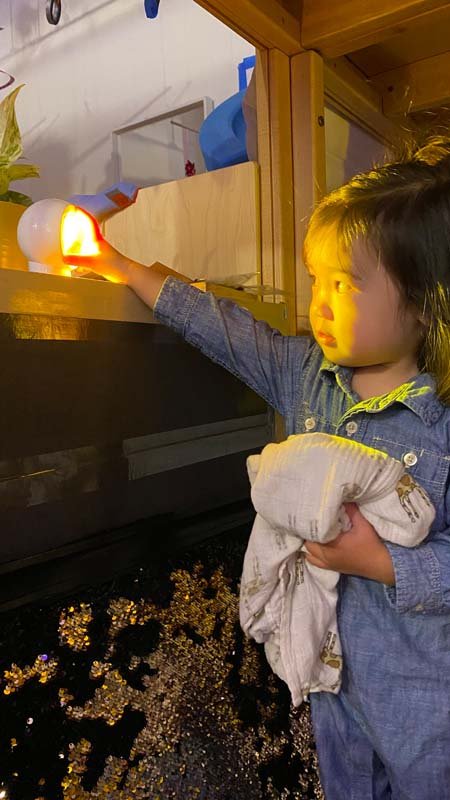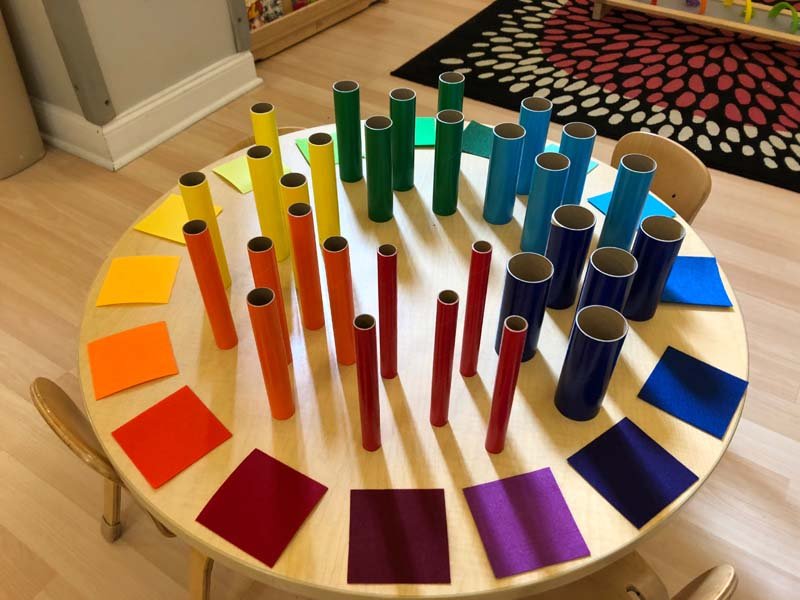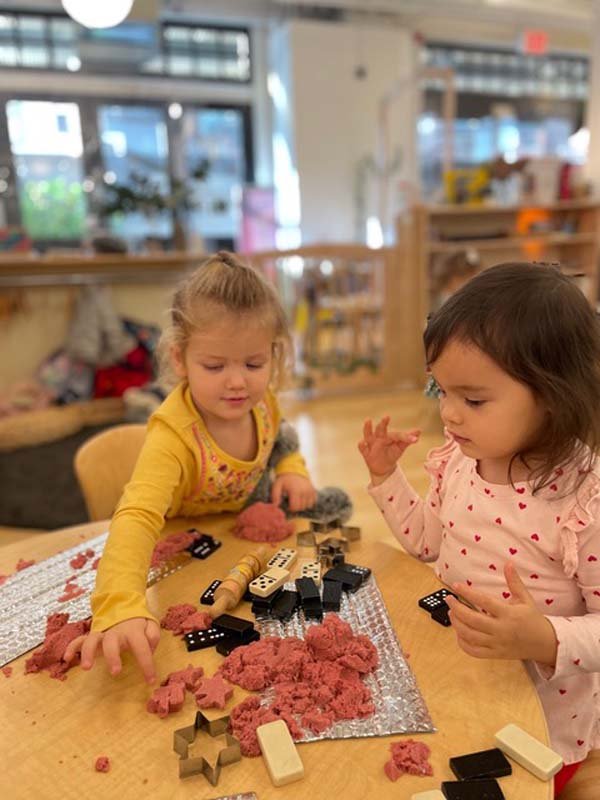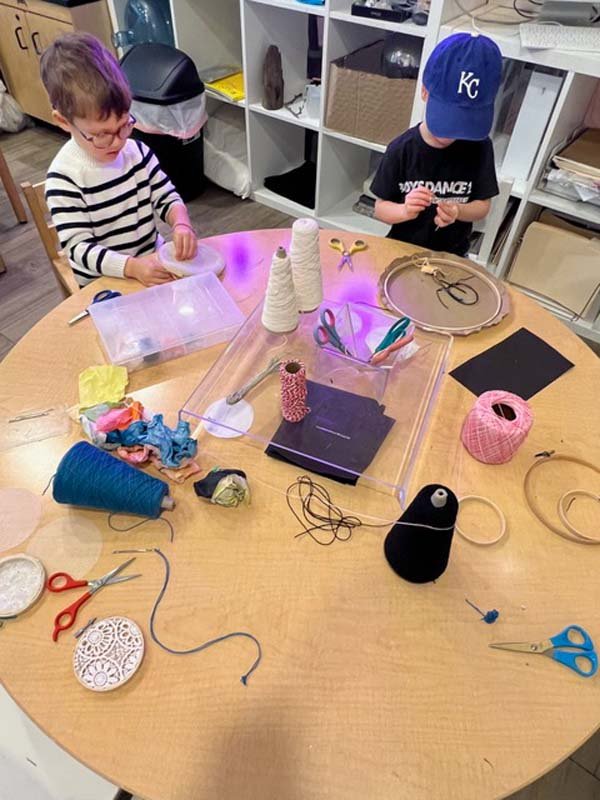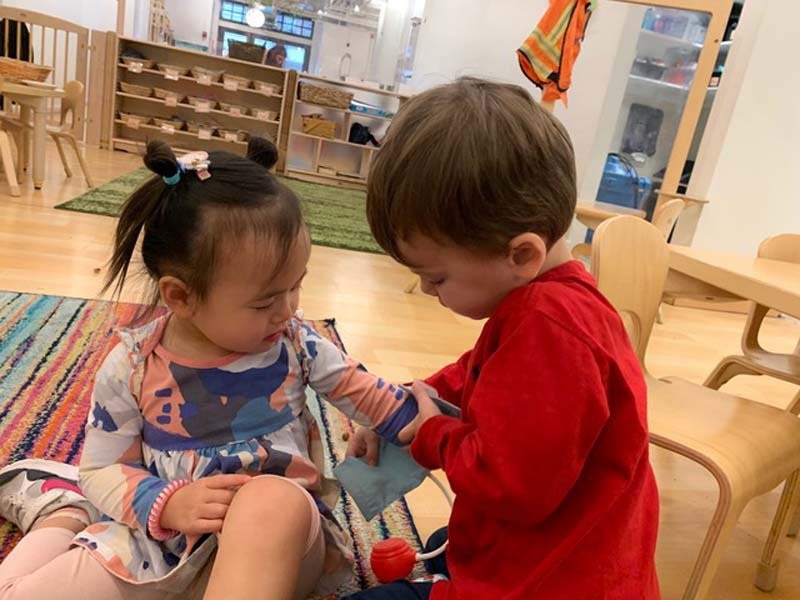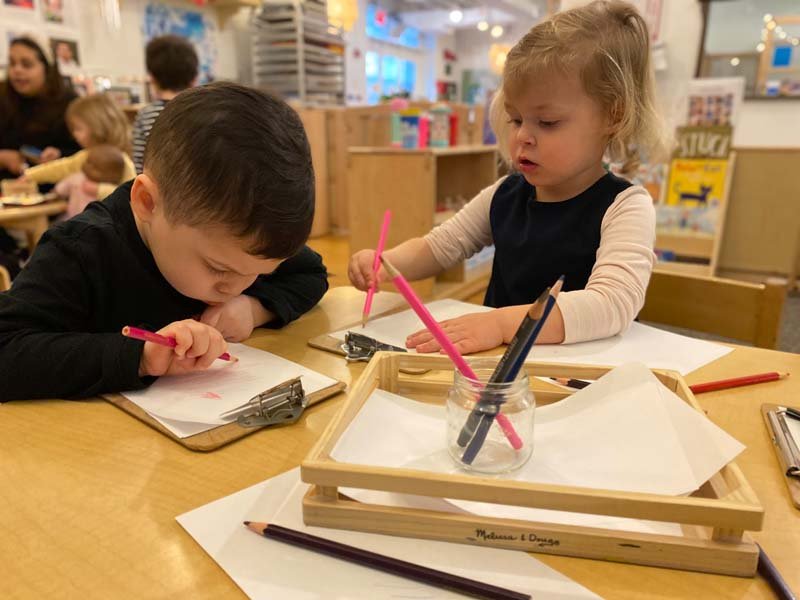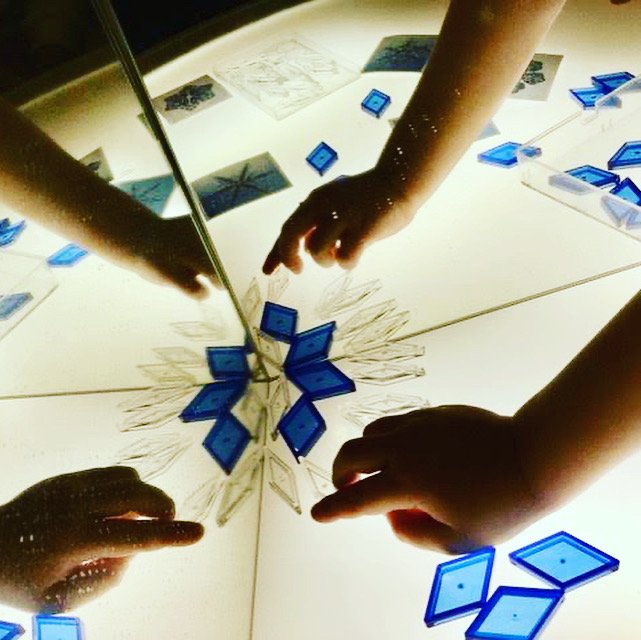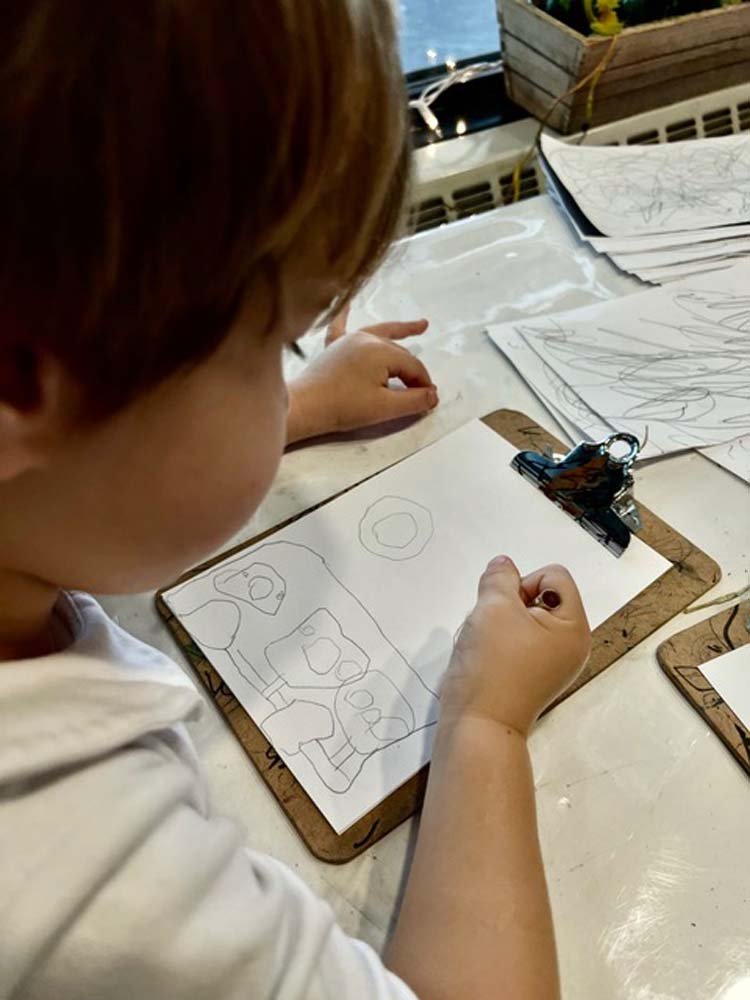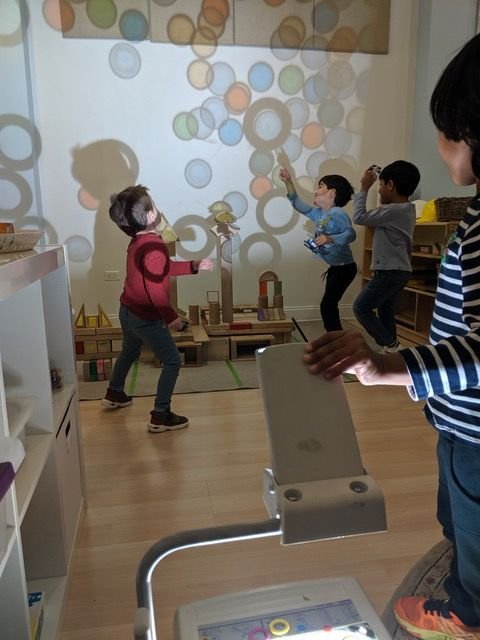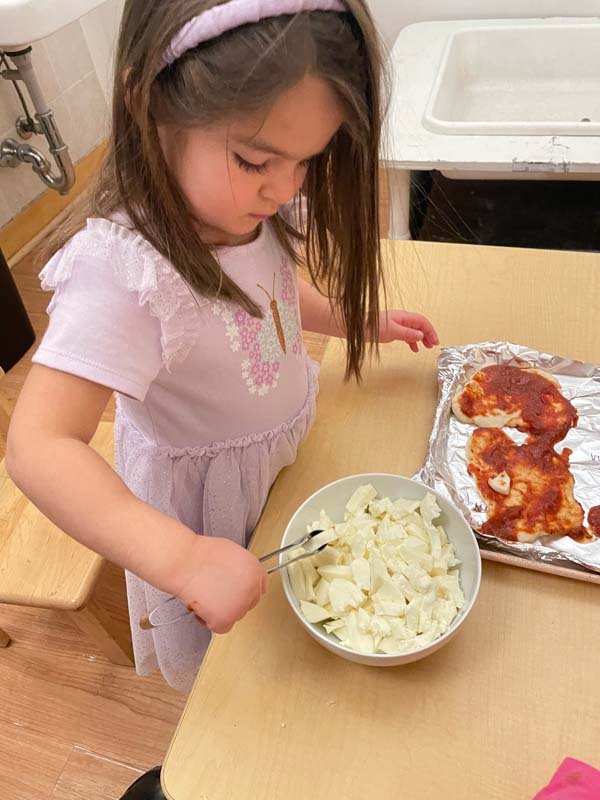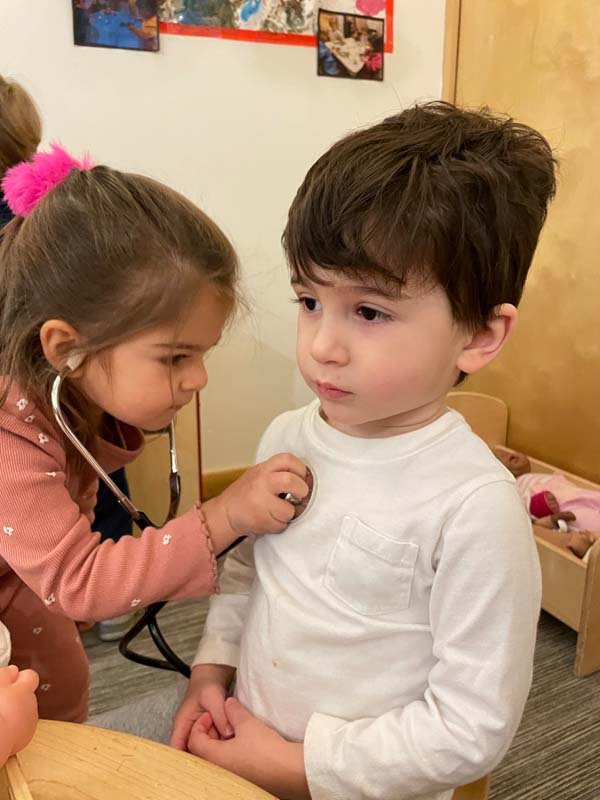
We are founded on the theories and principles of constructivism, social constructivism, and the highly regarded Reggio Emilia Approach to early childhood education.
We believe that children are born with a natural curiosity about the world, and that cultivating this curiosity with careful listening and support is the key to successful lifelong learning. At TriBeCa Community School, we seek to accomplish this by providing children with meaningful experiences for play and exploration, while nourishing their potential as individuals.
Consistent with this approach, our goal is to create conditions for learning that will benefit a child's "powers of thinking" by creating opportunities for self-expression and self-actualization. This is accomplished through a combination of principles and practices whose emphasis include problem-solving, collaboration, documentation of children's work, and the ongoing involvement of parents and community.
Through the use of painting, sculpting, music, science, storytelling, theater and other forms of self-expression, children are taught to give voice to their thoughts and ideas, as well as share their newfound discoveries and understandings.
With Social Constructivism at our core, the pillars of the Reggio Emilia approach to Early Childhood Education guide our approach. Our teachers are researchers, co-constructing and learning alongside the children. We carefully observe, document, and plan experiences for the children based on current early childhood research and best practices.
Elements of the Reggio Emilia Approach
As interpreted by the teachers and children of TriBeCa Community School
Emergent Curriculum
Topics of study and areas of experience emerge from the children’s interests and needs. The teachers carefully observe and document the children’s learning processes. The teachers also create provocative environments allowing the children to express and discover their own interests. Short and long-term in-depth investigations and explorations that cover a wide range of topics, emerge from listening to the children and co-constructing knowledge with them.
Collaborative Problem Solving
Children work collaboratively on in-depth investigations. The teachers view themselves as the children’s partners and support independent peer learning as a critical tool for the development of problem solving and critical thinking skills.
Social Interactions and Learning
We believe that social interactions are at the foundation of learning. Through effective communication and by challenging and questioning one another’s theories, the children engage in deep processes of reflection.
The Hundred Languages
Through the use of painting, sculpting, music, science, storytelling, theater and other forms of self-expression, children are taught to give voice to their thoughts and ideas, as well as share their newfound discoveries and understandings.
The School Environment
Unique, loft-like open spaces demonstrate our commitment to community life and open communication. Classrooms are designed to support the children’s ongoing interests, experiences, and developing projects. Each campus has a large, central Atelier, library, and movement room that all children are able to use.
Documentation
Through use of videography, photography, and note-taking, teachers gain a deep understanding of the children’s work. Together with the children, teachers revisit past work in order to inspire and provoke deeper thinking. Documentation is visible around the school through panels, photos, and books. It gives value to the process as opposed to only the product, and shows children their work and thinking is valued.
Learn more…
Diversity, Equity, and Inclusion
At TCS we work consciously to make our school a community that actively fights discrimination of all kinds. We expect that this work will continue for the lifetime of the school; it is not a project that we can ever finish, but rather a developing perspective and an approach that will build and grow over time. Since the school’s founding in 2006, values related to social justice have informed both classroom practice and institutional choices. We work to help children think independently, to collaborate and problem-solve, to explore identity and develop empathy and awareness of their larger community. We foster open, regular discussions so the children feel comfortable naming and having conversations around issues of race, class, gender, and more at meaningful and developmentally appropriate levels. We strive to always re-energize and recommit to values that have been a part of us from the beginning through our foundational documents (mission, vision, values), our self-image, our classroom practice and language, and our institutional policies and practices.

